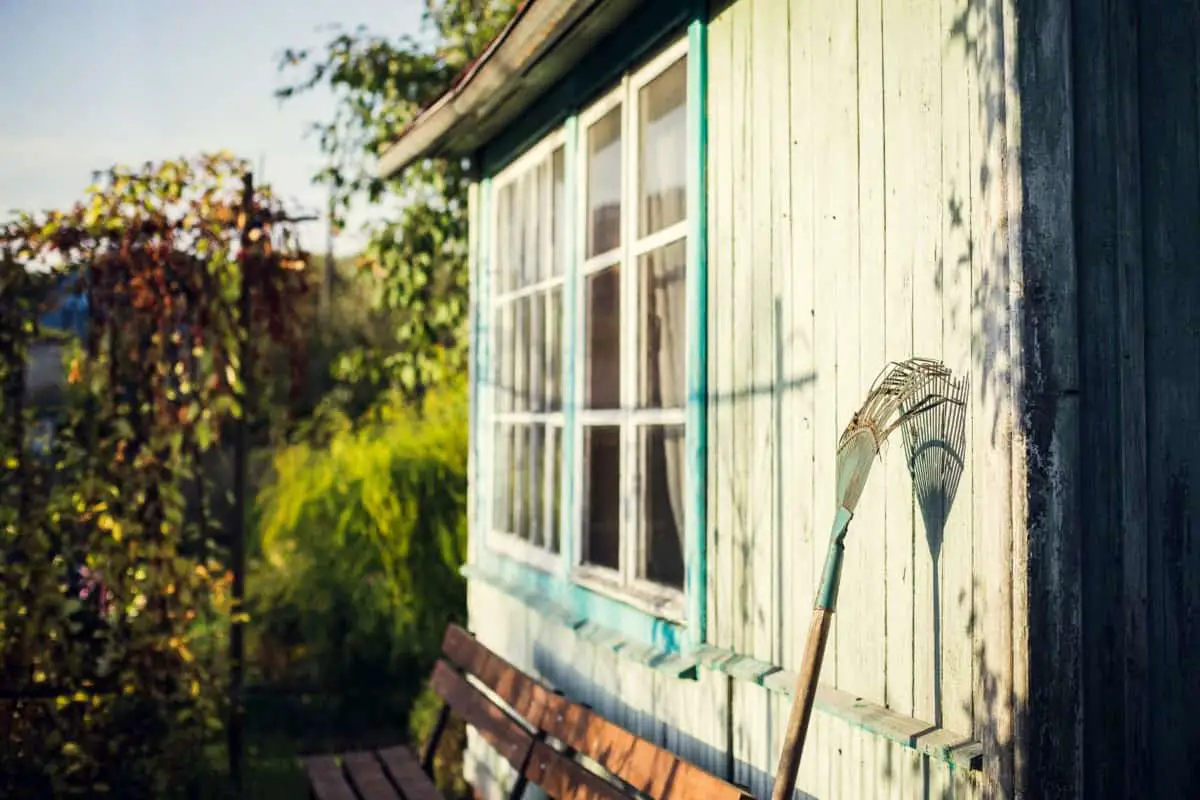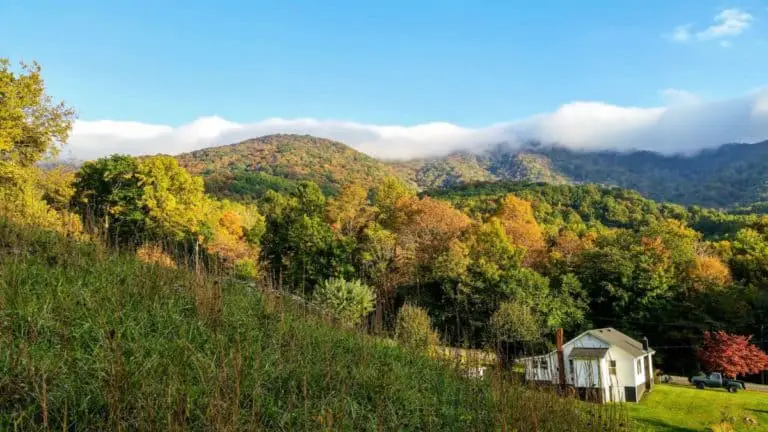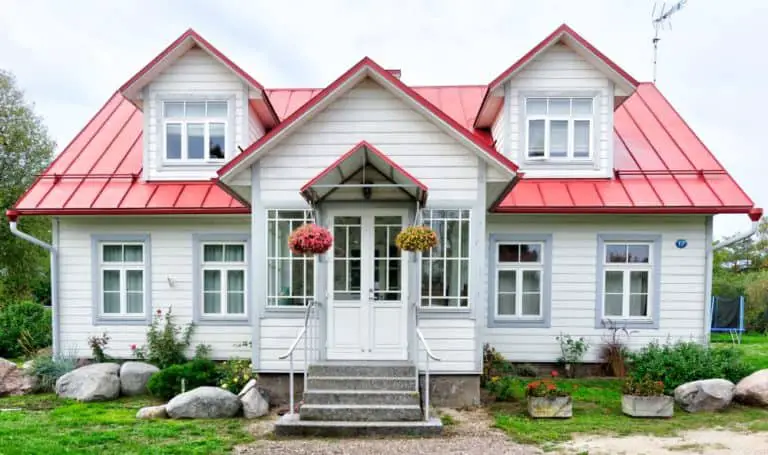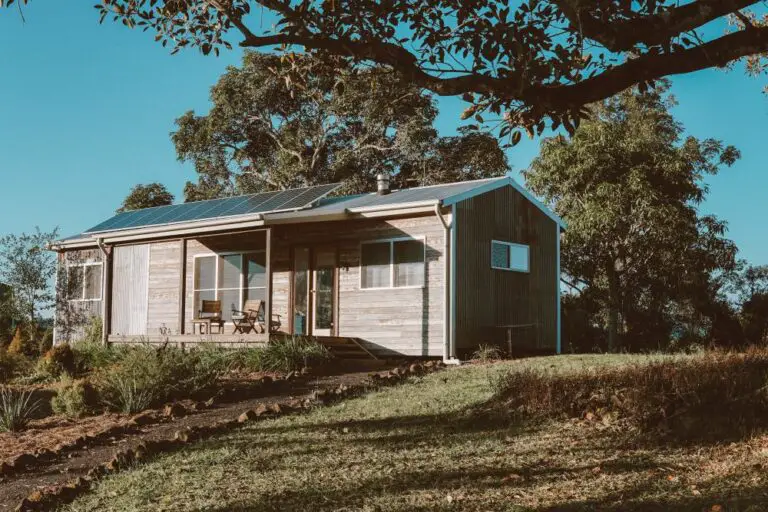How Can I Take My Home off the Grid?
When my wife and I began to talk about going off-grid, we first discussed moving to a remote location. After our two girls were born, it seemed less of a possibility, that was until we realized we could live off-grid in our existing home. Once we realized it might happen, we started getting serious about the details of how to do it.
To take your home off-grid you must plan how you will replace your power, water, food, and sewerage with off-grid alternatives. Give yourself enough time to practice each stage and learn the necessary skills. The best plans will be laid out in stages over several years.
Going off-grid can mean different things to different people. Because every situation is unique, there is no ‘one size fits all’ method. However, there are some things that all potential off-gridders should consider.
What Steps Do I Need to Take to Go Off-Grid?
This list of steps to take your home off the grid is designed to help you critically evaluate your situation and produce an effective plan of action. To get the most from it, you can either work through each item in order or choose the sections that are most relevant to your situation.
1. Decide what you want from going off-grid
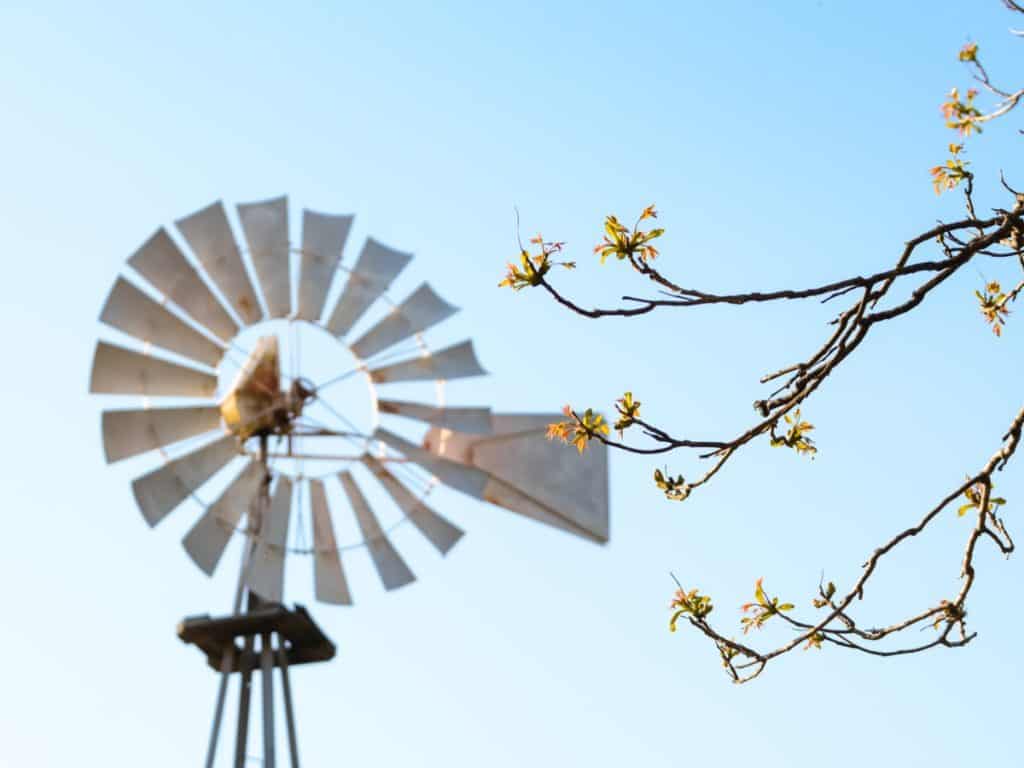
Think about what ‘off-grid’ means to you and record your ideas. This will give you an end target for you to focus on.
Now that you have a rough idea start to test some of the plans. For example, if your off-grid dream involves you using solar panels, start by using one to power a small number of appliances. Or if you plan to use a small electric hob for cooking all your meals, try using one and see how you get on. As a side note, check out the page I wrote with my recommendations for small solar panels, you can find it here.
The more ideas you can test, the more you can change them to suit your needs, and the easier it will be to adjust to the lifestyle when you finally achieve it. Use any new information to redraw your off-grid plan.
Once you have your end goal begin to think about the jobs you will need to do to get there, begin to break your goals and tasks into a to-do list.
You might find this useful: 5 Steps for a Successful Transition to Off-Grid Living
2. Check local zoning restrictions
This is a simple but essential check. Some areas have legal restrictions that may prevent you from living in the way that you want. Some places have laws or guidelines that require homes to be connected to the electricity grid or water mains. It’s essential to know about this before you start any alterations to your home.
If you do find some restrictions, it doesn’t have to be the end of your dream; you may just have to find a practical compromise. For example, if your home must be connected to a water utility, you can find a way to remain connected but still get most of your water from a well or collected rainwater.
Related reading: Is It Legal to Disconnect Your Home From the Electricity Grid?
3. Talk to other off-gridders
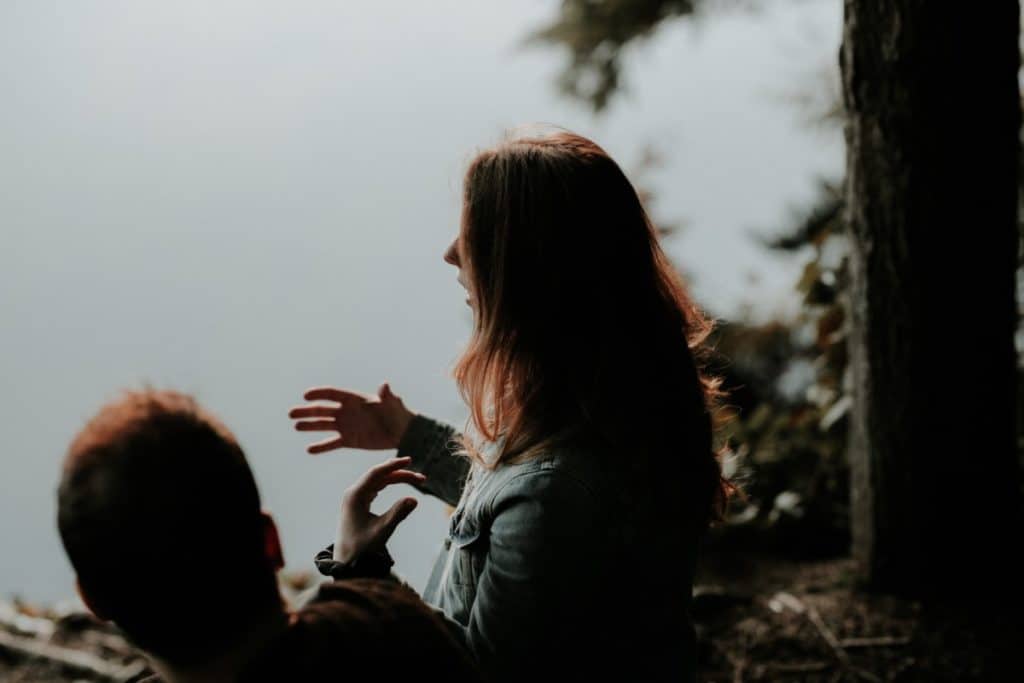
This is one of the most critical items on this list, especially if you are an off-grid beginner. If you can find other off-gridders to connect with, it will make your journey more comfortable and much more enjoyable.
Talking about ideas and experiences allows you to share the knowledge that may speed up your learning process. It’s important not to become overly reliant on the help of others, but creating a community of support and friendship is essential to success.
4. Add detail to your plan
Now that you have begun to firm up some of the features of going off-grid, you can return to your plan and add specific information and tasks.
It is vital to break down each task and stagger the significant changes. By not doing everything all at once, you can get used to each new adaptation and make any necessary adjustments as you go along.
Here are some things you may need to add to your to-do list:
Establish a power source and energy storage–
- How will you provide electricity for your home? A combination of wind and solar power with adequate energy storage will help you get through most weather with enough to run essential items. For some of my recommendations, visit: Best Solar Power Equipment for Your Off-Grid Home.
- Many off-gridders also have a generator to use as a backup in emergencies or to top up batteries on grey, windless days. Most American homes use at least 10,000kwh a year, but you must do a more detailed assessment of your needs. I wrote an article to answer the question What is the best battery for a solar power system? which you can find here.
Secure a water supply–
- Where will you get clean drinking water from? Is there the possibility of a well on your land? Can you collect rainwater? Decide how you will collect, clean, and direct the water to where you need it. If you can’t drill a well you may find this article useful: How to Get an Off-Grid Water Supply Without a Well,
- You also need to consider how to deal with wastewater. Many off-grid homes use septic tank systems that collect wastewater and then release it through a series of pipes into the soil. To find out more about off-grid waste solutions check out my wastewater management guide.
Decide how to provide food–
- Prepare how you will grow your food and stock up enough dry and tinned food to keep you going for six months while you find your feet. If you are planning on growing food and keeping livestock, you need to establish agricultural systems, so you know exactly how much you will need to grow. I also wrote a post you may find helpful, called How much land do you need to be self-sufficient?
- If you start these processes before you go completely off-grid, you can fine-tune your methods by trial and error first. Either forest garden or permaculture methods are great ways to establish kitchen gardens that require less maintenance and work overtime.
5. Learn new skills
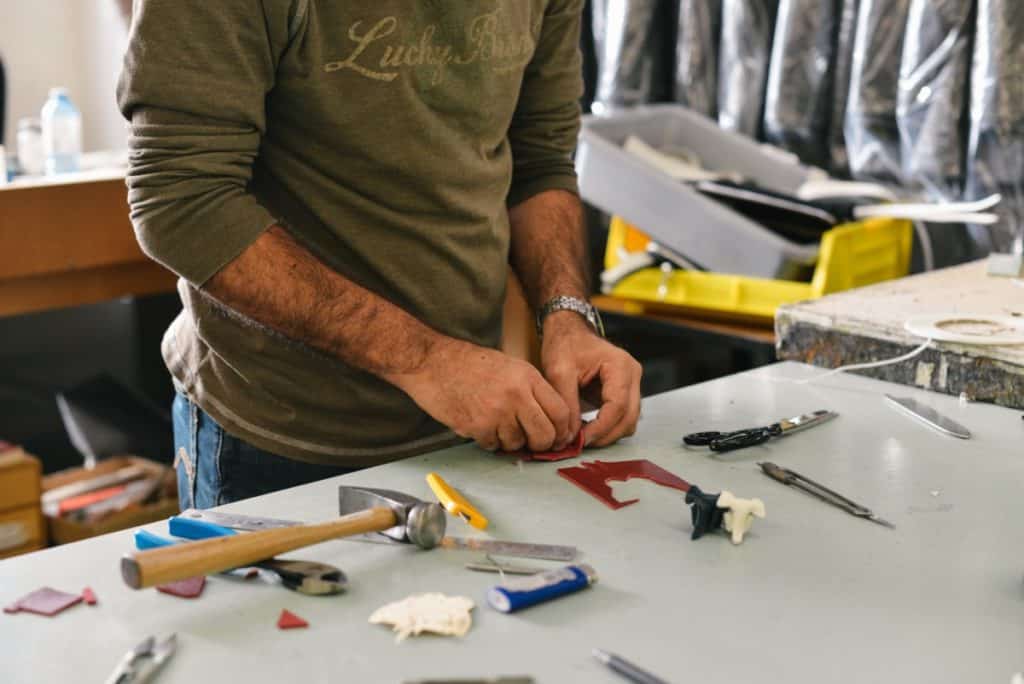
As you set out the tasks you need to complete before you get off-grid, you may realize that there are things that are beyond your current skill set. It may be tempting just to ignore these or just try your best. For the best chance of success at getting off-grid and staying off, make a list of all the skills you will need.
Now, look into how you can learn them as quickly as possible. You could go a course at a local college, take an online course at Udemy or Coursera, learn from a friend, or even find a relevant set of Youtube videos to teach you the basics.
Spending the time and money now to upskill will save it later if you make a costly mistake or have to pay a professional to come in and fix your ruined attempt.
6. Practice and prepare
Now you know what needs to be done and how to do it, get practicing. The more you run through each process, the easier it will become later on, and the more likely you are to be successful in your new venture. Dry runs of the bigger jobs and adaptations will help you uncover any issues you didn’t notice during the planning process.
7. Go off-grid!
You’ve done everything you can to be prepared and make a success. All that’s left now is to do it.
Conclusion
While you can never prepare for every eventuality, with some careful thought, planning, and a lot of determination, you can dramatically improve your chances of success. If you are serious about getting off the grid, you are bound to get there in the end, so there is no need to rush.
This article may help you set out your plans: 11 Challenges of going off-grid and how to overcome them.
The longer you take ensuring that each step is achieved, the more time you have to get used to the new situation, and the more likely you will still be living off-grid in ten years.
My Off-Grid Product Recommendations
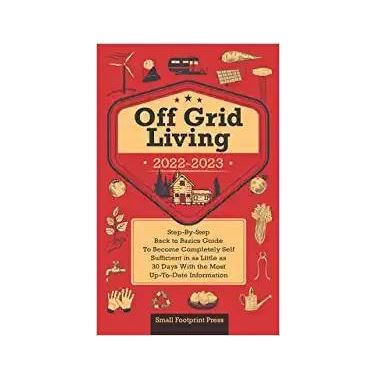
Useful Book: Off Grid Living 2022-2021 – This incredible step by step guide is a great read and gives you useful information about reaching self-sufficiency in just 30 days. Get the paperback on Amazon or read it free with a Kindle Unlimited subscription or listen to the audio version with Audible Plus membership.
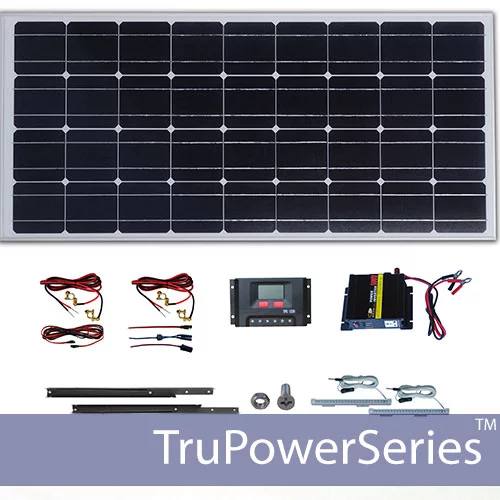
Small Solar Panel Systems: Silicon Solar – This is an excellent company that offers lots of products to get you started on your solar journey. Visit Silicon Solar.
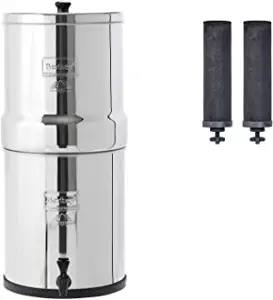
Family Water Filter: Big Berkey – For a fast, affordable water filter with no plumbing required, you can’t beat a Big Berkey gravity-fed filter like this one from Amazon.
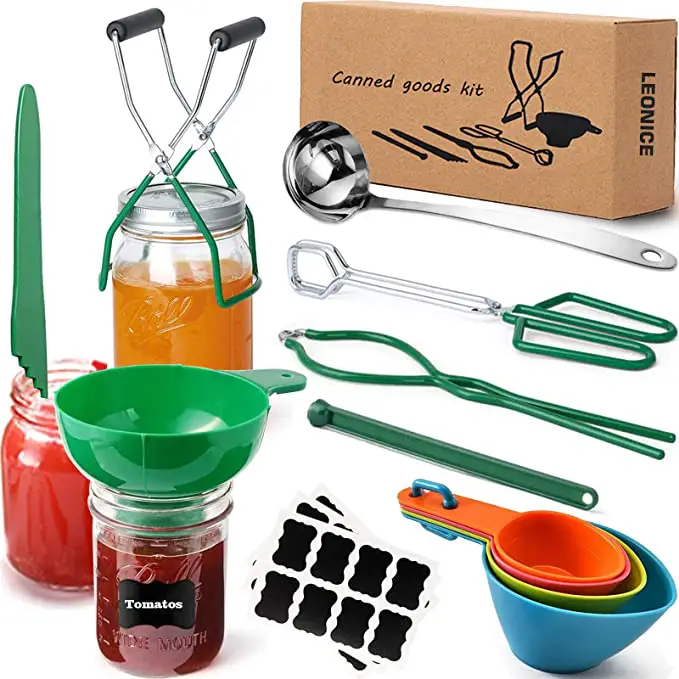
Canning Equipment – This canning starter kit, 22-quart Barton pressure canner and twelve-pack of Ball 16oz mason jars will help you preserve food as you work towards self-sufficiency.
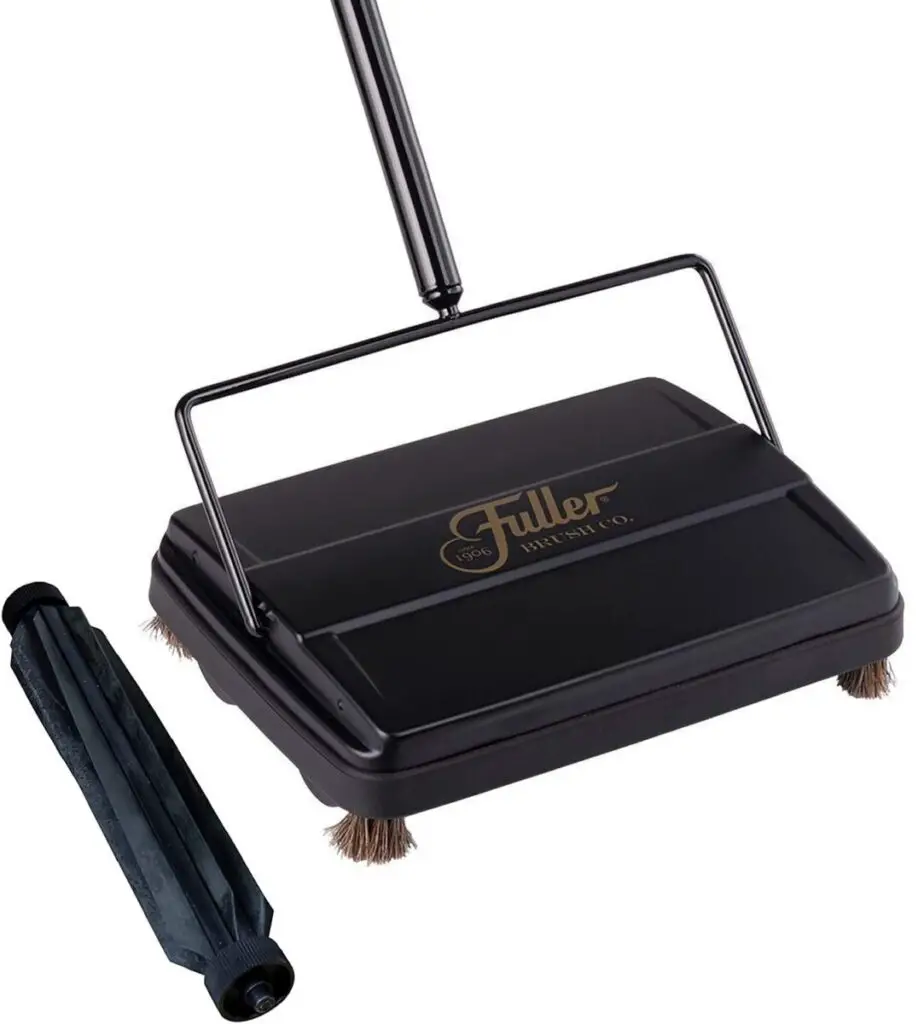
Cleaning: Fuller Carpet Sweeper –. This carpet sweeper is an ideal way to keep your home clean without using up your energy stores on vacuuming.

Handy Knife: Gerber Serrated Paraframe – This handy all-purpose knife is lightweight and ideal for all those little jobs around your home and garden.
